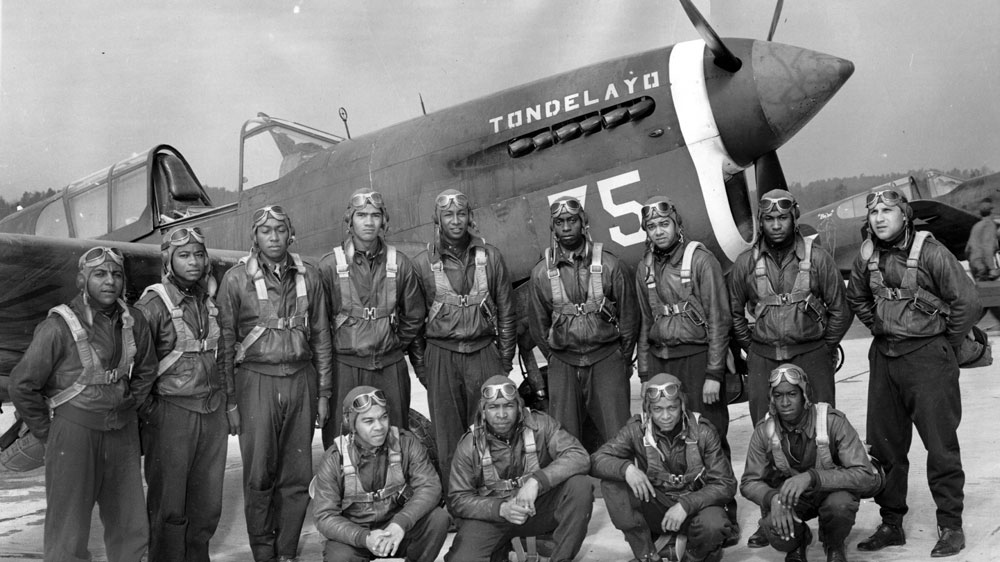Best of: The lasting legacy of the Tuskegee Airmen

Chanute Airforce Base in Rantoul became the birthplace of the Tuskegee Airmen—the first all-black aviator squadron of World War II. Courtesy Debra Larson, University of Illinois
Today we look back to recognize Tuskegee Airmen Commemoration Day and celebrate the first Black military aviators in the U.S. Army Air Corps, a precursor to the U.S. Air Force. You might have seen the green highway signs announcing Champaign County as the “Birthplace of the Tuskegee Airmen.” They were activated as the 99th Pursuit Squadron at Chanute Airfield Base in Rantoul, Illinois in 1941, trained at the Tuskegee Army Air Field in Alabama from 1941 to 1946, and flew more than 1,800 missions in Europe and North Africa during World War II.
Yet, for the Tuskegee Airmen, answering the call of duty meant serving a country that saw them as second-class citizens. They began their service more than 80 years ago, but relatively recently, their stories and accomplishments became widely known. In 2007, they were awarded the Congressional Gold Medal, the nation’s highest civilian honor.
To discuss the history and legacy of the Tuskegee Airmen, we were joined by the head of African American Studies at the University of Illinois and a service member.
Versions of this conversation aired on March 24, 2022 and May 29, 2023.
GUESTS:
Dr. Ronald W. Bailey
African American Studies Department Head, University of Illinois Urbana-Champaign
Reginald DuValle
Air Force veteran, first stationed at Chanute Air Force Base | President, Indianapolis Chapter, Tuskegee Airmen, Inc.
Captain Alex Hampton
U.S. Navy Deputy Airwing Commander, Carrier Air Wing 7

